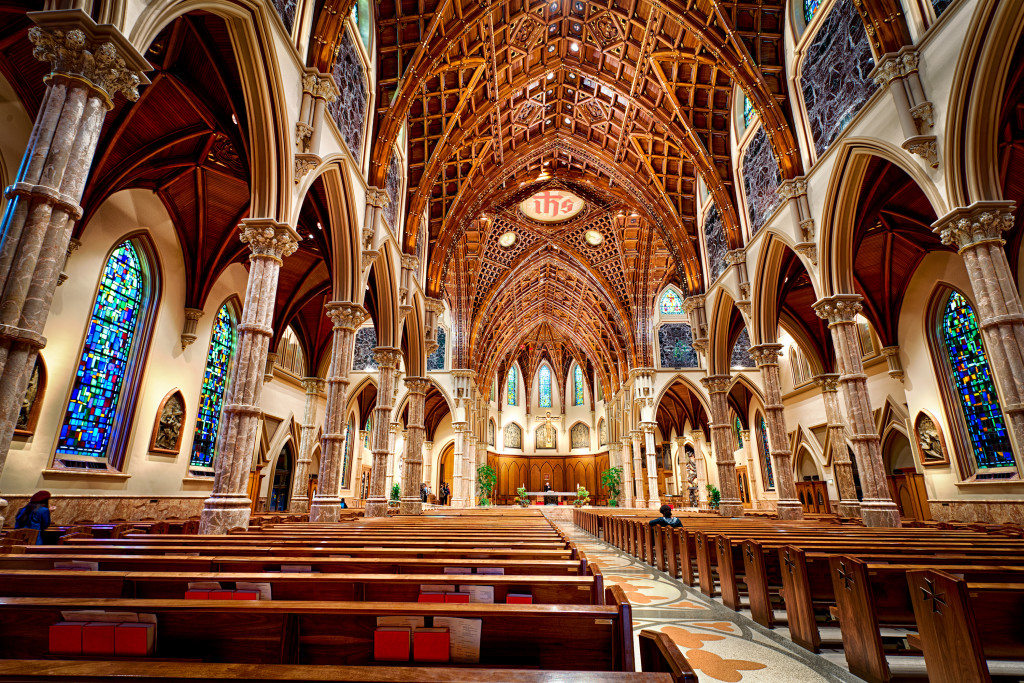For just as the body is one and has many members, and all the members of the body, though many, are one body, so it is with Christ. 13 For in one Spirit we were all baptized into one body—Jews or Greeks, slaves[d] or free—and all were made to drink of one Spirit.
For the body does not consist of one member but of many. If the foot should say, “Because I am not a hand, I do not belong to the body,” that would not make it any less a part of the body. 16 And if the ear should say, “Because I am not an eye, I do not belong to the body,” that would not make it any less a part of the body.
Now you are the body of Christ and individually members of it. (1 Corinthians 12:12-15, 27)

There are no rogue Christians. Or to put it positively: if you are a Christian, you will be a committed member of a local church.
There are no exceptions to this. At all. These aren’t just the radicalisms of a person passionate about the local church (as I am), they are the imperatives of the Apostle Paul, and indeed the greater witness of the New Testament.
The Disease of Rugged Individualism
In today’s comfortable, middle-class, seeker-sensitive, ruggedly individualistic culture that dominates the American church, it is rare to find a contemporary Christian that is radically passionate about the regular life of the local church in corporate worship, expository preaching, and celebration of the sacraments.
In the current “All About Me” culture, the notion of commitment to the local church doesn’t sit well with contemporary listeners. We want to go to church on Christmas and Easter, or maybe even “attend” church every once and a while online. This is a disease. It is like a cancer that grows and slowly kills a person. It is spiritual and biblical delusion to think that to be a Christian, one does not need the church.
It is spiritual and biblical delusion to think that to be a Christian, one does not need the church.
Granted, and before I begin to show why it is not only important, but indispensable, for a Christian to be a member of a local church, I know there are situations (like shut-ins, terminal/disabling illnesses, etc.) that virtually disable an individual from such commitment. For the purposes of this post, I am not talking about these people. But for everyone else that wears the name of Christ, church membership is indispensable.
The Case for Christ’s Bride
Why is this the case? A lot of it comes from the above passage in 1 Corinthians 12, and some is from other places in the New Testament. But the main argument comes from the fact that there are two basic desires of the human soul, whether unsaved or saved: 1) every human (saved or unsaved) wants forgiveness; and 2) every saved human desires fellowship with God. I want to briefly show that God only meets these desires in the context of the local church. Because I promised these series of posts to be relatively short, I will restrain myself and merely make a few observations.
1. If you want to experience the forgiveness of Jesus, you have to be part of a local church.
Before you accuse me of being a cultist, don’t misunderstand that statement. I don’t mean that forgiveness comes by going to church that the church has the power to forgive sins. What I do mean is that because Jesus died for the Church (Eph. 5:25), one must be a member of its local expression, the local church. You might have noticed that I underlined the capital C and lower-case c of Church and church. That’s because there is a difference between the two.
When Paul says that “Christ loved the church and gave himself for her”, he means that Jesus died to forgive the universal Church, that is, every born-again believer in all places at all times. Or to use more doctrinal language: Jesus, the High Priest of the New Covenant, died to mediate the blessings of the New Covenant to the covenant community (Heb. 7:25, 8:8-12).
This universal covenant community (the Church) is often called the invisible church because it cannot be seen and its true members are only known by God Himself. We do not know who are truly saved in our congregations. Jesus says, “Many will say to me ‘Lord, Lord’…and I will say to them ‘I never knew you'” (Matt. 7:22, 23).
So the only way that we, and the world, can know who represents Jesus is by the faithful covenant membership of covenant members in the local church. John makes this same statement when he says, “They went out from us, but they were not of us; for if they had been of us, they would have continued with us. But they went out, that it might become plain that they all are not of us” (1 John 2:19).
Evidently, some that had once professed faith in Jesus were leaving the church. John makes it plain: “These people were not Christians in the first place; they were never truly forgiven. If they were, they would have remained faithful members of our church.”
Or to summarize, the forgiveness of Jesus’ Church is enjoyed and experienced in the context of the expression of the local church. If you want to experience the forgiveness of Jesus, you have to be part of a local church.
2. If you want to experience the presence of the Holy Spirit, you have to be part of a local church.
Paul just makes this absolutely clear in 1 Corinthians 12! Putting the nature of the spiritual gifts debate aside, all Christians want to have a deeper experience and communion with the Holy Spirit. The Holy Spirit’s job is to show us Jesus (John 16:13), and all who have trusted in Jesus as their salvation (or “say Jesus is Lord” as Paul calls it) want to experience the Spirit in new, deeper ways (or “earnestly seek the higher gifts” as Paul calls it), and we were confirmed in our reception of the Spirit when we identified ourselves with the local church (or “baptized into one body” as Paul calls it).
If you don’t progressively desire more of Jesus (and consequently, more of the Holy Spirit), you aren’t a Christian (Philippians 1:23, 3:8). Therefore, if you want to experience the Holy Spirit, you have to be part of a local church. This is just the fact of the passage!
The Corinthian Christians were (negatively or positively) passionate about experiencing the Holy Spirit in the form of His gifts. Rather than telling them to go into the woods and become a hermit, he reminds them that the presence of the Holy Spirit is mediated through the fellowship believers in the local church. Why else would he bring up the church (the “body” as he calls it”) in the middle of a passage about the spiritual gifts? Because Paul assumed the necessity of the local church in order to experience the Holy Spirit.
Just skim through the book of Acts and you will quickly realize that nearly every time the Holy Spirit moves in power, it is when the church is gathered (Acts 2:38-47, 4:23-37, 5:12; especially Acts 13:4-12).
Also interesting to note is Galatians 3:5 when Paul says, “Does he who supplies the Spirit to you and works miracles among you do so by works of the law, or by hearing with faith?” “Hearing with faith” here means receiving a promise of the Word of God, indeed in personal devotions, but especially in the preaching of the Word of God in the local church (cf. Rom. 10:17). If you want to experience the presence of the Holy Spirit, you have to be part of the local church.
Do Not Neglect the Meeting of the Saints
The hope of this first Blurb is not to guilt you into going to church next Sunday. The hope of this post is to spur you to joyfully obey as Hebrews 10:25 commands: to “not [be] neglecting to meet together, as is the habit of some, but encouraging one another, and all the more as you see the Day drawing near.”
Find a good, Christ-exalting, Truth-loving, Bible-saturated, Gospel-centered, People-loving, Grace-dependent local church and commit to doing life with the saints of God.






Responses